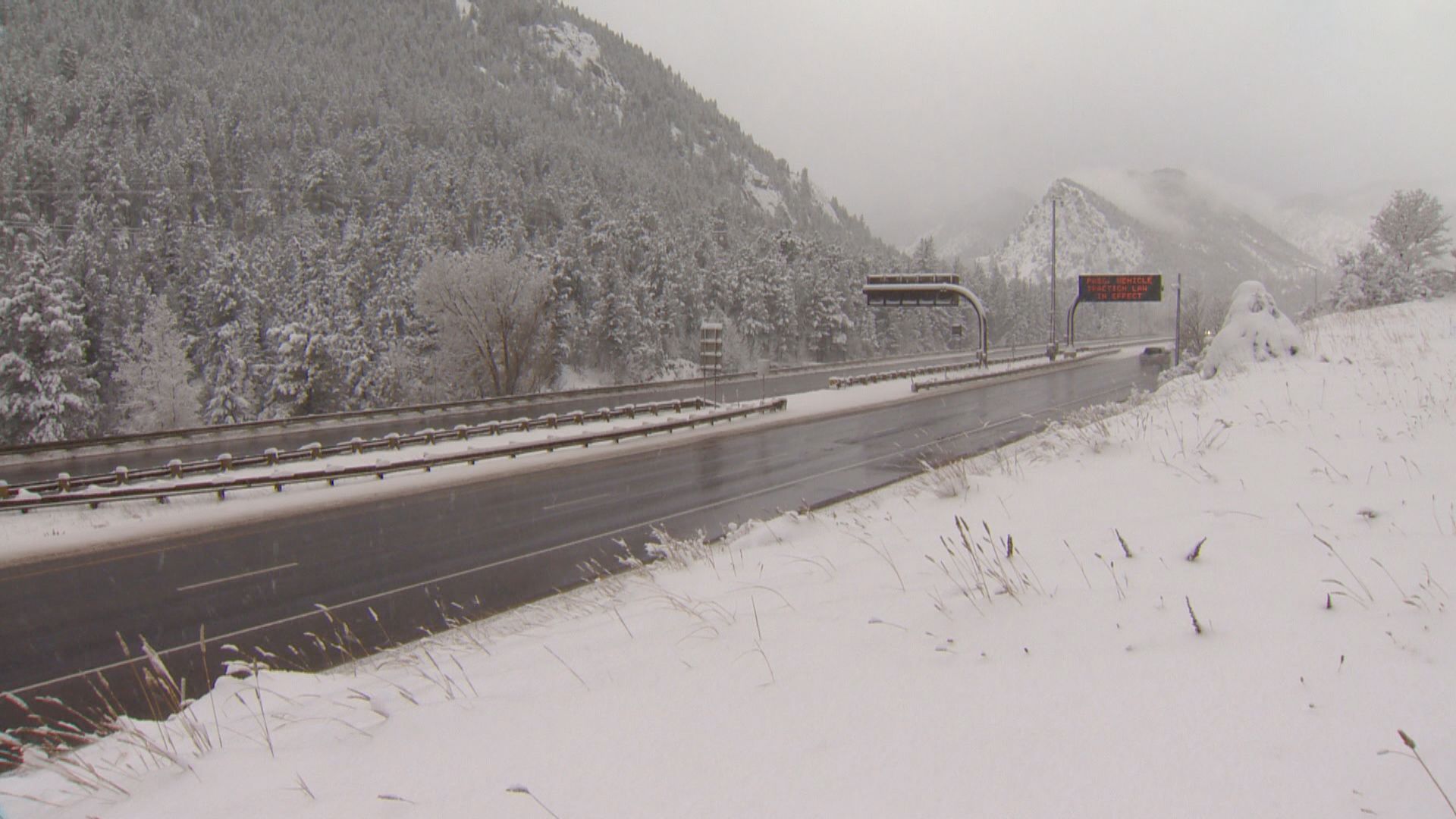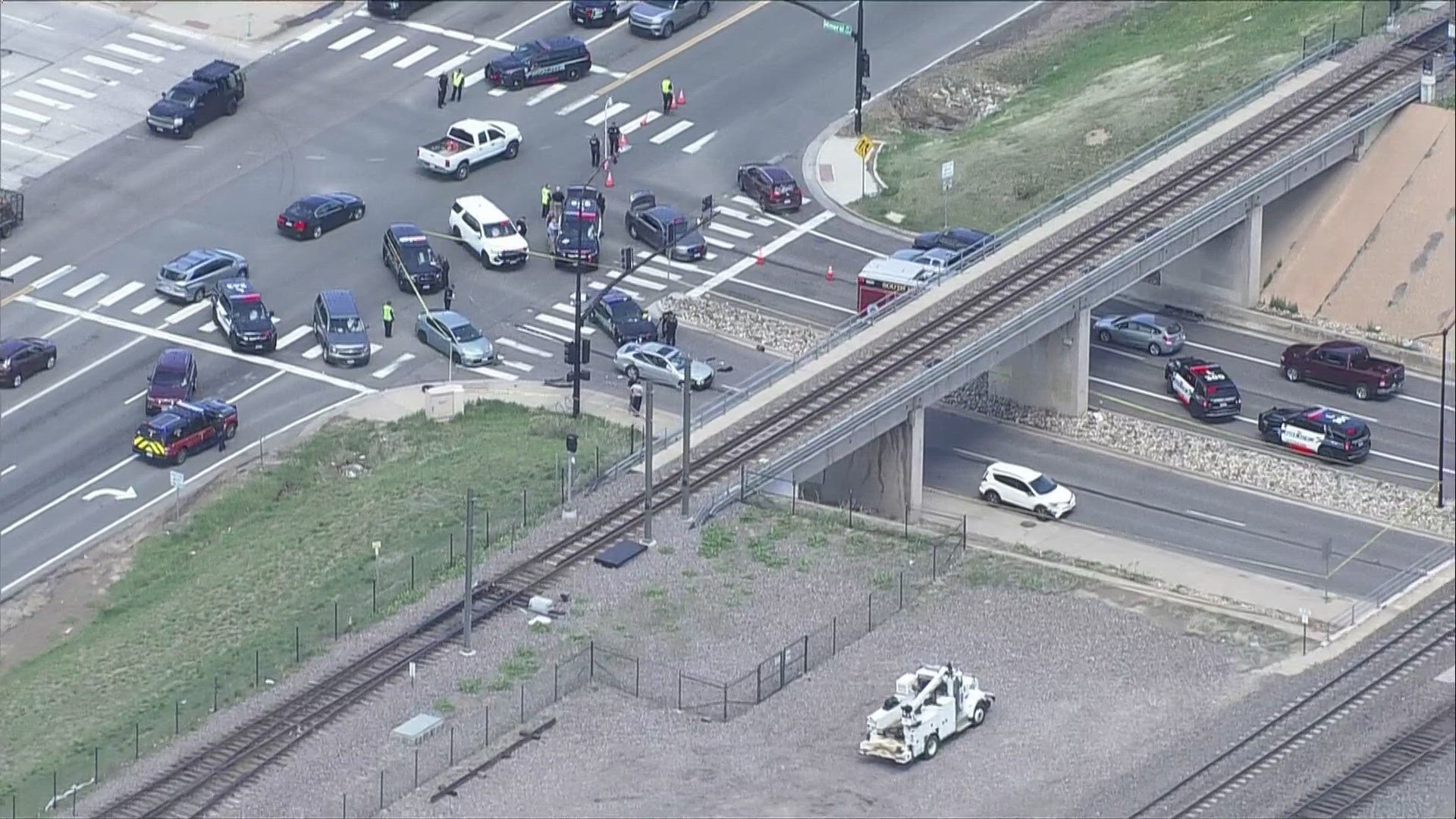You wouldn't have known it if you never left the Denver metro area Monday, but the mountains got a white Christmas.
Unlike Saturday, when Interstate 70 was shut down for a time between Golden and Vail because of whiteout conditions and spin-outs, the Colorado Department of Transportation stayed ahead of the storm.
On Monday, CDOT put the traction law in effect again between Idaho Springs and Vail, meaning vehicles needed to be four-wheel drive, all-wheel drive or have snow tires.
"I don't know, what's a snow tire?" said Rona Wang, a California college student driving to Winter Park.
Wang and her friend Xu Cheng were stopped at an Idaho Springs gas station when they said the thing that may upset you more than finding out they are from California.
"First time driving in the snow," Wang said. "I feel like every out-of-stater doesn't like California drivers. They don't like California female drivers or Asian female drivers from California. It's OK, we're just mocking ourselves."
It was actually Cheng's first time seeing snow fall from the sky. They were on a trip to Winter Park and then Glenwood Springs later in the week. It's not clear they were in a vehicle that met the traction law requirements, though I-70 was mainly wet to the Empire/Winter Park exit.
"We drive really slow, though," said Wang. "I pressed my gas pedal, I just couldn't get (going)…"
"Which is a good thing," interrupted Cheng.
"I think it's a good thing, actually," said Wang.
The traction law was put in effect on Saturday when conditions turned quickly on I-70. Then, CDOT shut down the interstate.
"Our plow drivers had five feet visibility. We didn't think it was safe for others to be out," said CDOT spokeswoman Amy Ford.
She warned that more restrictive methods could be use more often in the future; the rarely used passenger vehicle chain law.
"You're going to see us, as an agency, calling that more and more these days. This is something that's a bit of a throwback for people," Ford said. "That means that when we call a chain law, you must put chains or an alternative traction device on your tires. Just like the truckers, you would have to do the same."
That means you probably should have asked Santa for a set of chains for your tires.
"People rely on their all-season tires as being good, and the reality is, all-season tires in certain conditions are not good enough," said Ford. "If you're spun out for just one minute, you're just turning your tires and just trying to get traction even for one minute, it takes six minutes for the people who are sitting behind you to clear that queue out. That's just one person. Now you put the volume on top of that and that's what we're seeing in that corridor grow and grow and grow."
If the passenger vehicle chain law were ever in effect, you could be ticketed by Colorado State Patrol simply for not having chains, since troopers could visually see the violation. When the traction law is in effect, though, you are only cited if you cause a crash or get stuck and need help.
"We could set up checkpoints and require people to come through them and we could check cars for traction," Ford said. "The challenge for here in Colorado, and I-70 specifically, is pure volume. The amount of people going up, it would make it a very difficult endeavor to do something like that."
Even if you have a four-wheel drive or all-wheel drive vehicle without snow tires, you need tires with a good tread. The common test is to put a quarter in your tread upside down, and if any part of George Washington's head is covered, you're good to go.
"They've got to have good tread. If they have crap tread, it's not going to go," Ford said.


